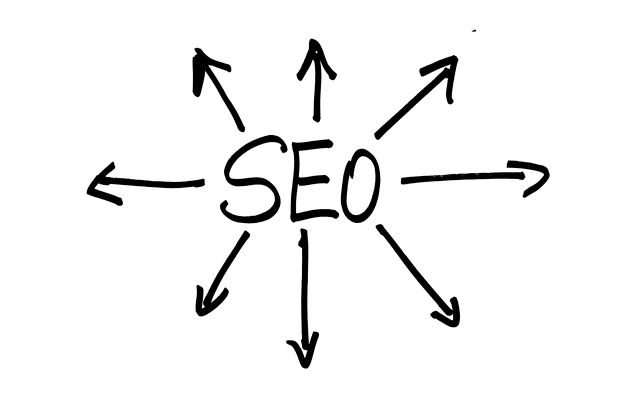Small Business SEO Training equips entrepreneurs with digital marketing skills crucial for online success. By targeting specific audiences through keyword research, businesses create relevant content and optimize their websites with tools like Google Keyword Planner. On-page techniques, including strategic keyword placement, enhance search engine rankings and user experience. Off-page strategies like guest blogging and backlink building from reputable sources increase online credibility. Technical SEO optimizations ensure website accessibility for search engines and users, while tracking metrics through tools like Google Analytics provides insights for data-driven decisions. Continuous learning in this dynamic field is vital for small businesses to stay competitive in today's digital marketplace.
Small businesses in today’s competitive market need effective strategies to stand out, and that’s where SEO content training comes into play. This comprehensive guide is tailored for small business owners seeking to master the art of Search Engine Optimization (SEO). We’ll explore crucial aspects of Small Business SEO Training, from understanding the basics of SEO and identifying target audiences through keywords research to on-page optimization, building backlinks, and technical SEO essentials. By mastering these skills, you’ll enhance your online visibility and attract a steady stream of customers.
Understanding Small Business SEO: Why It Matters and Its Benefits

Small Business SEO Training is an essential tool for any entrepreneur aiming to thrive in today’s digital landscape. Understanding Search Engine Optimization (SEO) is crucial for small businesses looking to compete with larger competitors online. By optimizing their websites and content, small businesses can improve their search engine rankings, making them more visible to potential customers. This increased visibility leads to higher website traffic, which directly translates to more sales and business growth.
Effective Small Business SEO strategies help in building a strong online presence, establishing credibility, and fostering customer trust. It enables local businesses to target specific demographics, ensuring their content reaches the right audience. With proper training, small business owners can learn to create engaging, keyword-rich content that resonates with their clients, ultimately driving organic growth and long-term success.
Identifying Target Audience: Keywords Research for Small Businesses

Identifying your target audience is a crucial step in any successful Small Business SEO Training. It involves understanding who your potential customers are, their needs, and how they search for products or services online. By conducting thorough keyword research, small businesses can uncover valuable insights into the terms and phrases their ideal clients use when searching on search engines like Google. This knowledge allows for the creation of targeted content that resonates with the audience, thereby increasing visibility and attracting potential customers.
Keywords play a pivotal role in optimizing your website for search engines. They act as bridges between users’ queries and your online content. Through tools such as Google Keyword Planner or SEMrush, businesses can discover relevant keywords with high search volumes but less competition, giving them an edge over larger competitors. By strategically incorporating these keywords into meta titles, headings, and body text, small businesses enhance their chances of ranking higher on search engine results pages (SERPs), ultimately driving more organic traffic to their sites.
On-Page SEO Techniques: Optimizing Your Website Content

In the realm of Small Business SEO Training, on-page techniques are paramount. Optimizing your website content involves a strategic approach to ensure search engines understand and rank your pages effectively. This includes keyword research and placement, where relevant keywords are integrated naturally into titles, headings, meta descriptions, and throughout the content itself. Quality over quantity is key; well-crafted, informative content that satisfies user intent will not only attract visitors but also encourage them to stay longer, reducing bounce rates.
Additionally, on-page SEO involves optimizing technical aspects like site structure, URL formatting, and image alt tags. A clear and hierarchical site structure helps both search engines and users navigate your website effortlessly. Properly formatted URLs with relevant keywords provide additional context for search algorithms. Image alt tags not only describe visuals but also offer another opportunity to include targeted keywords, enhancing accessibility and content relevance.
Off-Page SEO Strategies: Building High-Quality Backlinks

Off-Page SEO is a crucial aspect that small businesses should focus on during their content training, as it involves strategies to enhance search engine rankings beyond their website. One key component is building high-quality backlinks, which are incoming links from other reputable and relevant websites. These backlinks act as votes of confidence in the eyes of search engines, indicating that the business’s content is valuable and trustworthy.
By implementing effective off-page SEO tactics, small businesses can attract these valuable backlinks naturally. This includes guest blogging on industry-related sites, creating shareable infographics or research studies, and engaging with influencers or industry leaders to secure mentions or links. These strategies not only help in improving search engine visibility but also expand the business’s online reach and credibility.
Technical SEO Essentials: Ensuring Your Site is Search Engine Friendly

For small businesses looking to boost their online visibility, understanding Technical SEO Essentials is crucial through a comprehensive Small Business SEO Training. This involves optimizing your website’s structure and code to make it easily accessible and understandable for search engines. A well-structured site ensures that web crawlers can navigate and index your pages efficiently, leading to better rankings in search results.
Key components include ensuring fast page load times, creating a mobile-friendly design since most users access websites on their smartphones, implementing structured data markup to help search engines understand the content of each page, and setting up a XML sitemap to guide crawlers through your site’s hierarchy. These techniques form the backbone of Technical SEO, enabling small businesses to compete effectively in the digital landscape.
Measuring and Analyzing SEO Performance: Tools and Metrics to Track

Measuring and analyzing SEO performance is a crucial aspect of any Small Business SEO Training program. It allows business owners to understand what’s working, identify areas for improvement, and ultimately, refine their strategies for better results. There are several tools and metrics available to track this performance. Keyword rankings, organic traffic, click-through rates (CTRs), and bounce rates are some key metrics to monitor. Tools like Google Analytics, Google Search Console, SEMrush, Ahrefs, and Moz Pro provide valuable insights into these areas.
For instance, Google Analytics offers detailed reports on user behavior, including pages per session, average session duration, and conversion rates. Google Search Console provides data on keyword rankings, search volume, and click-through rates. Combining these insights with competitor analysis can offer a comprehensive view of the small business’s SEO health and help in making informed decisions to optimize content for better search engine visibility.
Staying Ahead: Continuous Learning and Trends in Small Business SEO

In today’s digital landscape, staying ahead in Small Business SEO requires continuous learning and adaptation to evolving trends. The algorithms of search engines like Google are constantly updated, factoring in new metrics such as mobile-friendliness, site speed, and user experience. Therefore, small businesses must invest in regular SEO Content Training to stay competitive. This ongoing education is crucial for keeping up with changes in search engine optimization strategies that can significantly impact online visibility.
Small Business SEO Training should focus on teaching practical skills in keyword research, content optimization, backlink building, and analytics interpretation. By understanding these fundamentals, business owners can create high-quality content that resonates with their target audience and ranks well in search results. Staying informed about industry trends ensures that small businesses leverage the latest tools and techniques to maximize their online presence and reach a broader customer base.
